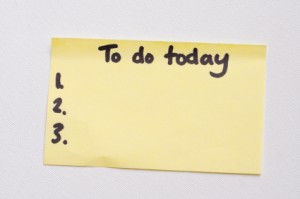Lean. Simple. Efficient. That’s how I want things to work in my life. I’m sure you do, too. Because not only does this often bring us better results, it takes less time and puts less stress on our systems.
So why do we make things so complicated?
In our writing. In our task management. In our presentations, conversations, marketing, management, relationships, methods, and everything else.
Why do we add unnecessary elements? Why do we change things that are working? Why don’t we adapt things that are clearly better?
Habit? Always done it this way. Don’t see a pressing need to change.
Pride? Look at how busy I am. Look at how complicated and important my work is.
Laziness? I can’t be bothered with that nonsense.
Fear? What if I make a mistake?
All of the above?
But it’s important and we have to do it.
Admit that simple is usually better and make it a priority.
Look at all of the steps and all of the resources and ask:
- Is this necessary? Could I do without it?
- Is there a better way to do this?
- Can this be done more quickly? Less expensively?
- Can I re-use or re-purpose something I used before?
- Can I consolidate this step with others?
- Can I delegate this to someone else?
- Can I do the same thing with only one tool?
Piece by piece, pare down your world. Fewer methods. Fewer steps. Fewer tools. Fewer people.
If you’re not sure about something, remove it. You probably won’t miss it. If you do, you can add it back.
Start with something small. Clean out a drawer, edit a form letter, or unsubscribe from a few emails. Once you get started, if you’re like me (and you are) you’ll want to do more.
Make it a part of your weekly review. Challenge yourself to make your life as simple, uncluttered, and efficient as possible. Because in doing so, you’ll earn more, work less, and make room in your life for the things that matter most.
A simple way to get more referrals from other lawyers








